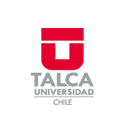
2 results
Search Results
Now showing 1 - 2 of 2
Item Non-Compliance with laws and regulations (NOCLAR)Autores: Ponce Carvajal, CamilaProfesor Guía: Salas Ávila, JoséEl conocimiento y análisis de la aplicación de las Normas Internacionales de Ética para Contadores (International Ethics Standards Board for Accountants – IESBA) en un contexto internacional y nacional y su relación con la nueva forma de informar un acto ilegal o incumplimiento o sospecha de incumplimiento a las leyes o regulaciones Non-Compliance With Laws And Regulations (NOCLAR), expresada en la ejecución del trabajo de los auditores y contadores, se hará efectiva desde este año, julio de 2017, es la razón de ser de este trabajo de investigación. 246 auditores con experiencia fueron consultados acerca de los procedimientos definidos en la nueva norma ética NOCLAR, Non-Compliance With Laws And Regulations. Las conclusiones estadísticas muestran que la sección 225, la cual tiene como propósito establecer las responsabilidades del auditor registrado cuando se encuentra con tal incumplimiento o sospecha de incumplimiento, y guiar en la evaluación de las implicaciones del asunto y los posibles cursos de acción al responder a él, es la más importante en la aplicación de la nueva norma ética Non-Compliance With Laws And Regulations (NOCLAR), debido a que resulto estadísticamente significativa, según las respuestas de los auditores con experiencia, en el momento de la ejecución del trabajo, ya que esta trata de establecer el enfoque que debe seguir un auditor que se encuentra o tiene conocimiento del incumplimiento o sospecha de incumplimiento de las leyes y regulaciones conocidas, que tienen efecto directo en la determinación de cantidades materiales y divulgaciones en los estados financieros del cliente. Y otras leyes y reglamentos que tienen cumplimiento, de los cuales puede ser fundamental para los aspectos operativos del negocio del cliente, a su capacidad para continuar sus negocios, o para evitar sanciones materiales. Palabras Clave: Ética, Ilegal, Incumplimiento, Sospecha, Responsabilidad y NOCLAR./ABSTRACT: Knowledge and analysis of the application of the International Ethics Standards for Accountants (IESBA) in an international and national context and its relationship with the new way of reporting an illegal act or breach or suspicion of non-compliance to The laws or regulations Non-Compliance With Laws And Regulations (NOCLAR), expressed in the execution of the work of the auditors and accountants, will be effective from this year, July 2017, is the raison d'être of this research work. 246 experienced auditors were consulted about the procedures defined in the new ethical standard NOCLAR, Non-Compliance With Laws And Regulations. The statistical conclusions show that section 225, which has as its purpose to establish the responsibilities of the registered auditor when it encounters such non-compliance or suspicion of non-compliance, and to guide in the evaluation of the implications of the matter and possible courses of action in responding to he is the most important in the application of the new ethical standard Non-Compliance With Laws And Regulations (NOCLAR), because it was statistically significant, according to the responses of experienced auditors, at the time of execution of the work, since it tries to establish the approach that an auditor must follow that is or has knowledge of the non-compliance or suspicion of non-compliance with the laws and regulations known, which have a direct effect in the determination of material amounts and disclosures in the client's financial statements . And other laws and regulations that have compliance, of which may be critical for the operational aspects of the client's business, their ability to continue their business, or to avoid material penalties. Keywords: Ethics, Illegal, Non-compliance, Suspicion, Responsibility and NOCLARItem Factores determinantes que condicionan el comportamiento ético frente a la evasión de impuestos Parte IIAutores: Cáceres Azócar, Cristina MatildeProfesor: Gana Galarce, Aída AndreaAutor Institucional: Universidad de TalcaProfesor Guía: Farías Retamal, Claudia MaríaEsta investigación explora como influyen los distintos determinantes en el comportamiento del contribuyente frente a la evasión fiscal, buscando la respuesta por medio de revisión literaria de investigaciones, encuestas, informes y libros. Se explorará el comportamiento ético del contribuyente y la conexión que se genera por la percepción que éste tiene del Estado y sus instituciones. El propósito de este estudio será evidenciar como influyen en el comportamiento ético del contribuyente la confianza y los actos de corrupción, producto de la percepción que estos tienen en la administración y las instituciones del estado, las cuales evidencian conductas alejadas del bien común. El enfoque metodológico que tendrá esta investigación es cualitativo, debido a la naturaleza de los datos que serán considerados, estos no serán de carácter numérico. La recolección va dirigida a proporcionar una mayor comprensión respecto de la confianza en las entidades públicas y en el Estado, la percepción de los actos de corrupción, que cobran gran relevancia en estos tiempos, dada la contingencia que vive el país, la falta de compromiso y cumplimiento de los ciudadanos en el pago del impuesto y su compromiso con el Estado. // ABSTRACT: This research explores how the different determinants influence taxpayer’s behavior in the face of tax evasion, seeking the answer through a literary review of research, surveys, reports, and books. The ethical behavior of the taxpayer and the connection generated as a result of their perception of the state and its institutions will be explored. The purpose of this study will be to show how trust and acts of corruption influence the ethical behavior of the taxpayer, as a result of the perception that they have in the administration and state institutions, which show behaviors that are far from the common good. The methodological approach of this research is qualitative, due to the nature of the data that will be considered, these will not be numerical. The collection aims to provide a greater understanding regarding trust in public entities, the perception of corruption acts which are highly relevant in these times, given the contingency the country is experiencing, the lack of compliance of citizens in paying the tax, and their commitment to the State.

